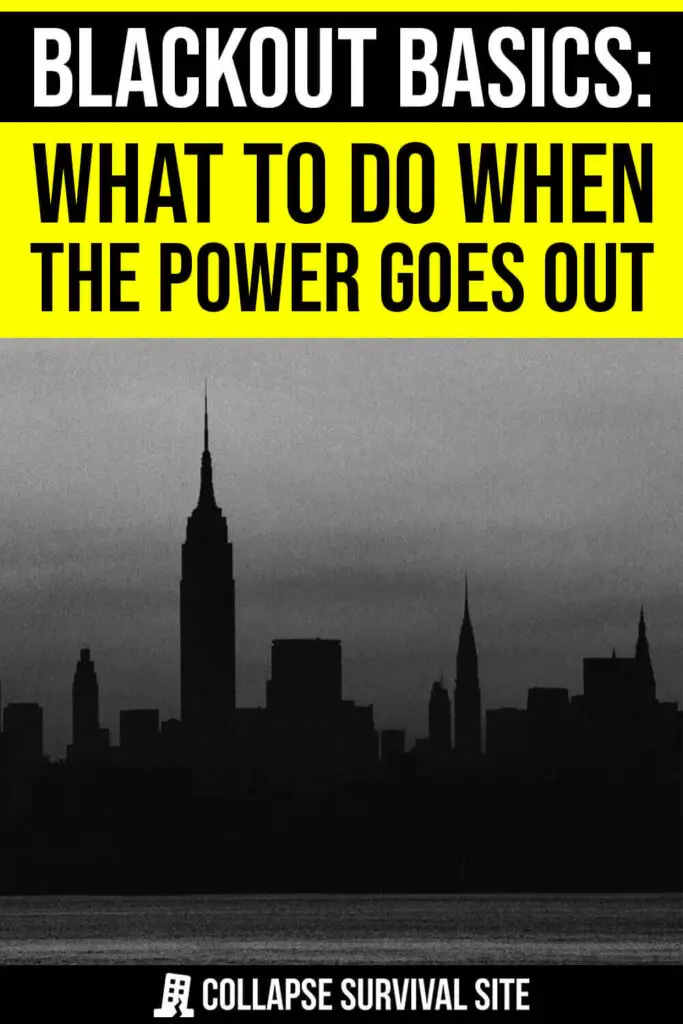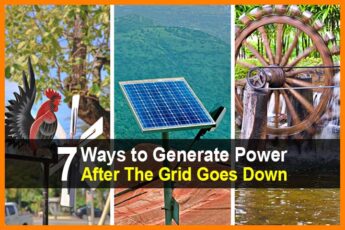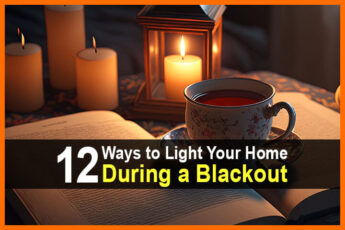Estimated reading time: 7 minutes
An increase in severe weather-related events combined with an aging infrastructure has made power outages more of a “not if but when” event for many Americans.
According to the U.S. Energy Information Administration (EIA), the average American home experiences about two hours of power outage each year outside of major weather events. However, the key word in the sentence is “outside.”
The number of outages triples when the agency factors in hurricanes, wildfires, heatwaves, and severe winter storms. Overall, outage time has more than doubled since 2013, when the EIA began compiling its reliability data.
Annual power outage periods vary significantly between states, from about 1.5 hours in South Dakota to nearly 30 hours in North Carolina, according to EIA data. As you would expect, states more prone to extreme weather—such as hurricanes in North Carolina — have significantly longer disruptions.
Want to save this post for later? Click Here to Pin It On Pinterest!
Additionally, our nation’s power grid has become a target for domestic extremists. Attacks on U.S. power grids rose to a historic high in 2022, with physical threats and cyberattacks to electric infrastructure increasing by 77 percent to 163, according to the Department of Energy (DOE).
Let’s face it. Power outages are an inconvenience for anyone. However, the longer they last, the more dangerous they can become.
Food spoilage, exposure to threatening temperatures, potentially disabled water systems, medical equipment failures, and lack of refrigeration for medications top the list of dangers that can occur when the lights go out.
In addition, lengthy blackouts can hurt businesses. The DOE estimates blackouts cost American businesses around $150 billion per year.
Although there is little the average citizen can do to prevent a blackout, there are some steps you can take to help you through one. This article offers a list of 12 actions you can take during a power outage, which is defined as an unexpected loss of electricity.
1. Grab your “lights out” box
A “lights out” box (also called a blackout box) is a container full of supplies that come in handy when the power goes out. Here are some of the essentials to place in your box, tote, or bag.
- Flashlight or headlamp (along with extra batteries) for each member of the family
- Candles, lighters, or matches
- Solar-powered and battery-powered USB power packs and chargers
- Battery-powered or hand-cranked radio
- First aid kit
- Bottled water
- Non-perishable snacks
- Puzzles, paper and pen, playing cards
Make sure the box is in an easy-to-retrieve location when the lights are out. Check on the items in the bag at least once a year, rotating them out as necessary. Check out this video for more ideas for your blackout box.
2. Keep refrigerator and freezer doors shut
Only open your refrigerator and freezer doors when necessary during a blackout. An unopened refrigerator will remain cold for around four hours without power. A full freezer will hold its temperature for approximately 48 hours.
Eat any perishable foods first. Throw away poultry, meat, fish, eggs, and leftovers after four hours without power. Go by the “when in doubt, throw it out” rule for food spoilage. Here are additional guidelines for food health and safety during a power outage.
3. Fill tubs, sinks, and buckets with water
In a widespread outage, the municipal water supply may become unsafe to drink or stop flowing.
By filling large containers ahead of time, you’ll have a limited supply of water for washing, drinking, and toilet flushing. Also, keep in mind that you could have 40 gallons (or more) of water in your water heater.
4. Gather information about the outage
Use your cellphone or the battery-powered radio to find out what you can about the outage, including what caused it and how long it is expected to last. Your local power company website is one source of information.
Common causes of power outages include wind and ice damage from storms and periods of high usage during heat waves. If you see a downed power line, stay away from it and report it to local authorities.
5. Follow your emergency contact plan
If some of your family members are away from home, it may be best for them to stay put. Power outages often make during unsafe due to poor road conditions, street lights, and traffic lights being out.
If you don’t have an emergency family contact plan in place, it’s time to create one now before a blackout or other crisis occurs. Here are suggestions for making a contact plan.
6. Protect electronics from power surges
When the electricity comes back on, the resulting surge can damage sensitive electronics. Make sure your appliances, TVs, and computers are plugged into surge protectors. For even more protection, you can just unplug your electric devices during a blackout.
As another precaution, turn down your thermostat to protect your HVAC system from a power surge. Here is more information from the Electrical Safety Foundation on keeping your electronics and home safe during and after a power outage.
7. Use alternative power sources wisely
If you’re facing a long-term outage, it’s best to be frugal in your use of battery-operated or solar-powered devices so that they last as long as possible. Here are some tips:
- Turn off your phone when you’re not using it.
- If you need to have your phone on, disable power-consuming apps and switch to low-power mode. Turning off WIFI can help save battery life.
- Remember, you can use your car battery to charge or power devices if need be.
8. Group family members and pets in one room
Choose one room of your home for everyone (including pets) to gather in during the outage period. That way, you can close off the rest of the house to help retain cool or warm air in that one location.
9. Stay warm in a winter outage
Winter ice and wind can play havoc with power lines. In addition to gathering in one location of your home, layer up clothing and use blankets to help conserve heat.
Capture any warmth from the sun by opening curtains or other window coverings on south-facing windows during the day. Then, close the window coverings at night to help trap heat. Seal doorways or windowsills with tape, plastic, or even rolled sheets and blankets to help retain heat.
10. Guard against burst pipes
If you have an uninterrupted water supply, keep a small stream or steady drip going in your faucets to keep water moving through your water pipes if your heating system is down.
Here’s more on how to prevent frozen or burst pipes.
11. Release your garage door
Look for the rope or cord that connects your garage door to the opener rail. When the door is closed, you can pull that cord to disconnect the door from its electric opener. Then, you can raise and lower the door by hand while the power is out.
12. Prioritize safety
We mentioned avoiding downed power lines in an earlier section, but here are other safety hazards to keep an eye out for during a blackout.
- Fire risk. Do not leave candles and oil lamps burning unattended. Be sure to keep flames well away from clothing, curtains, bed covers, and furniture.
- Carbon monoxide poisoning. Carbon monoxide is an odorless, colorless, tasteless gas that can become lethal in unventilated areas. Use your generators, camping stoves, and charcoal grills outdoors and at a minimum of 20 feet away from any doors and windows. Do not use a gas oven or range to heat your home.
- Electrocution. Here are safety guidelines to prevent electrocution during a power outage.
- Know when you need to leave your home. Older adults and very young children are vulnerable to the extreme heat or cold that may happen during a long-term blackout. Consider when it may be best to seek shelter elsewhere (such as a community emergency center) and check on neighbors who may need help.
As we prepared this article, the nation’s Southern states were enduring a long, sweltering heat wave that was presenting power challenges. As weather extremes and natural disasters become more frequent due to climate change, blackouts are becoming an ongoing threat.
Don’t wait until you face an outage to prepare your home and family.
Like this post? Don't Forget to Pin It On Pinterest!








